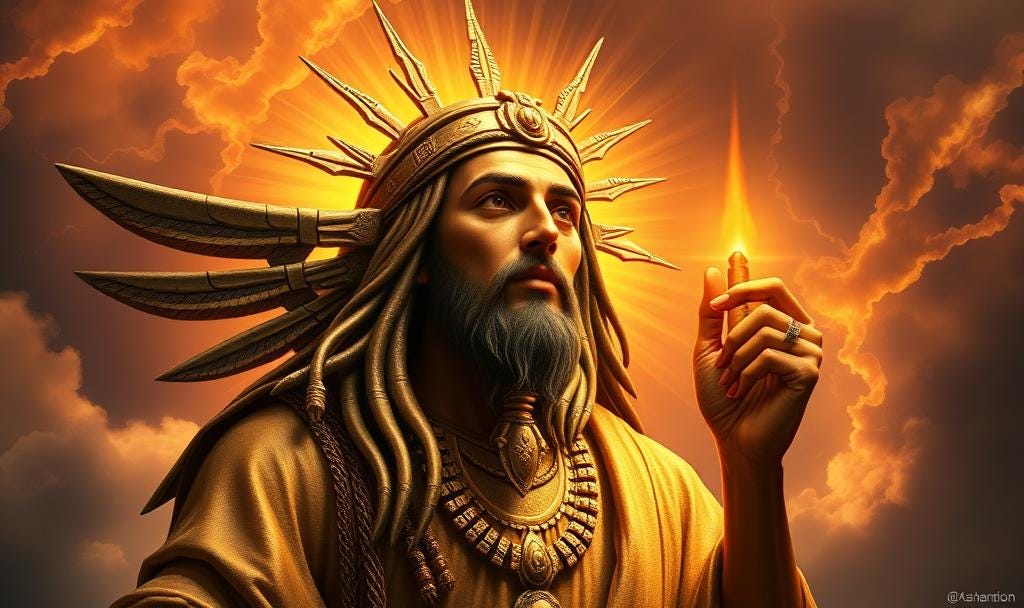In the digital age where our collective memory spans millennia through the click of a button, we find ourselves revisiting ancient stories with new eyes. From the depths of Sumerian cuneiform tablets to the sacred texts of the Bible, there's a narrative tapestry that might just weave together in ways we never dared to imagine. Let's dive into a speculative but fascinating op-ed: what if the Anunnaki, known in Sumerian mythology, are not just extraterrestrial beings but fallen angels from biblical lore, who not only imparted forbidden knowledge but also sired the Nephilim?
First, let's unpack the Anunnaki. Ancient Astronaut Theory, popularized by figures like Zecharia Sitchin, suggests these beings from the planet Nibiru came to Earth to mine gold and, in doing so, genetically engineered humans. This theory dovetails with the Sumerian texts where the Anunnaki are depicted as gods or rulers who shaped human civilization.
Now, enter the biblical narrative. Genesis 6:1-4 speaks of "sons of God" coming to Earth, taking human women as wives, and fathering the Nephilim, described as "the mighty men who were of old, the men of renown." Could these "sons of God" be the same as the Anunnaki? The parallels are striking: both have a divine or extraterrestrial origin, both interact with humanity in profound ways, teaching arts, sciences, and even warfare.
Consider the knowledge aspect. The Book of Enoch, an apocryphal text, details how fallen angels, led by Semjaza, taught humans various arts including metallurgy, cosmetics, and astronomy. This mirrors the Anunnaki's role in Sumerian myths as bringers of civilization, agriculture, and culture. Is it possible these are not separate myths but different cultural interpretations of the same events?
The Nephilim, often depicted as giants or heroes, might then be the offspring of these celestial beings, blending divine and human DNA. This genetic mixing could explain both the awe-inspiring feats attributed to them in ancient texts and the fear of their power, leading to their eventual downfall, as told in various mythologies.
What if this ancient astronaut theory isn't just about extraterrestrial visitation but a cosmic drama of fallen beings influencing human history? It's a narrative that challenges us to look beyond literal interpretations, inviting a synthesis of myth and scripture where the lines between god, alien, and angel blur.
This theory, while speculative, invites us to question our origins, our history, and our understanding of the divine. It's a call to see our myths not as isolated stories but as chapters of a larger, possibly universal saga. Whether you view these narratives through the lens of faith, history, or science fiction, they provoke thought on humanity's place in the cosmos and the forces that shaped us.
In conclusion, while we might never know the truth behind these ancient tales, considering the Anunnaki as fallen angels offers a fascinating bridge between different cultural heritages, urging us to ponder the origins of knowledge, power, and perhaps even our own existence. It's a story not just for the believers of one doctrine but for anyone curious about the mysteries of our past and the skies above.
Note: This op-ed is intended for thought-provoking discussion and does not claim to present historical or scientific fact. It blends mythology, ancient texts, and modern theories for speculative discourse.




